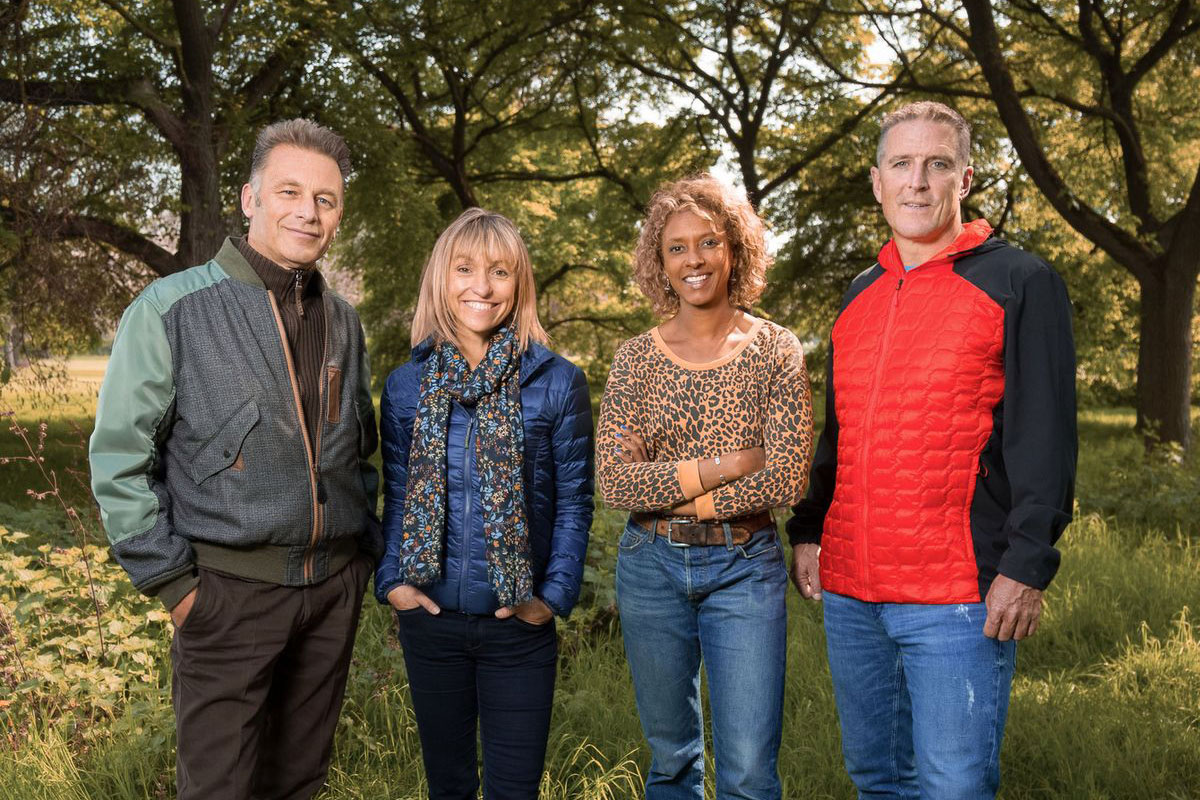In the past few weeks, we've learned that BBC Autumnwatch is going to be axed from the scheduling. The show was first aired in 2006, a year after the original series of Springwatch piloted (with Winterwatch following in 2012). In its heyday, the October series attracted nearly 4 million viewers. Soap operas with birds? Go on then. Since then, it has followed largely the same format of short films, live webcams and pithy live presenters – and maybe that's where the problem lies.
Following on from huge initial success, the viewing figures across the Watches have steadily dropped over the years. That's not overly surprising. Sixteen years is a very long time to hold an audience's attention. A reprieve came during the pandemic when the show was forced to adapt to lockdown conditions, and it seemed that Springwatch in particular had never been so relevant. People were craving their nature fix and the show felt refreshing and uplifting in a time of national concern.
However, the landscape in which we watch and consume television has altered beyond recognition. The Netflix phenomenon of boxsets and the ability across all terrestrial channels to 'catch-up' has made a lot of live television seem old fashioned. There are shows that still make it work (largely reality) and of course news and sports will thrive in a real time environment, but that commitment of tuning in on a near-daily basis for weeks at a time is a big ask from your audience.

After 17 years, popular wildlife television programme, Autumnwatch, has been cancelled by the BBC (BBC).
The Watches aren't just competing with tv, either, but also with social media. Anyone with a smartphone and a spare few hours can knock together a reasonable wildlife film, and as such, we’re seeing this sort of content constantly on our Twitter feeds.
So, what's missing? I like all the presenters and the balance of different excellent. I admire the platform they've given to young people over the years and their coverage of challenging issues, like bird of prey persecution and bird flu. I'd much rather tune in to the Watches than the far more popular BBC Countryfile (which pulls in around 9 million viewers a week). But honestly (unpopular opinion alert, stop reading now), I haven't watched a whole episode of any of the Watches for years.
On the one hand, I'm worried that the loss of Autumnwatch is the beginning of the end for regular British wildlife television. That makes me sad. But on the other, I really hope this makes room for a refresh of our wildlife content. While many passionate nature lovers will miss the programme, it's not them that need talking to: I'd bet the same 1.5 million viewers are already members of the RSPB and their local Wildlife Trust. Nature programming needs to reach new audiences and I don't think the BBC will manage that alone. They've held a monopoly on 5-minute nature films for too long, with wildlife stories seemingly shoved to the last ten minutes on the news, a segment in the One Show, or a fluffed-up Countryfile version. The Watches format their films in much the same way.
I would love to see Netflix, Amazon Prime and Apple taking on more British wildlife programming, in the same way that they've started to handle the big blue chips series. Our Planet, 2019, was co-created with Netflix. Much like Clarkson's Farm (Amazon Prime) temporarily tricked us all into thinking that Jeremy Clarkson wasn't that bad, can’t they make a documentary about some wealthy and pithy television presenter rewilding an area of land? We can laugh at their mistakes, feel sympathy when things don't go well, and cheer when a nightingale sings for the first time.
The Watches have undoubtedly been one of the most influential wildlife series ever to grace our screens. They should be applauded for that. And I'm proud to be good mates with one of the first producers, Stephen Moss. But 32-year-old me won't miss Autumnwatch. Hopefully this will drive a big refresh of Springwatch and Winterwatch in the coming years, too. The shows need it if they're going to stay relevant, influential and convince more (new!) people to put nature first
- This column was published in the March 2023 edition of Birdwatch.


